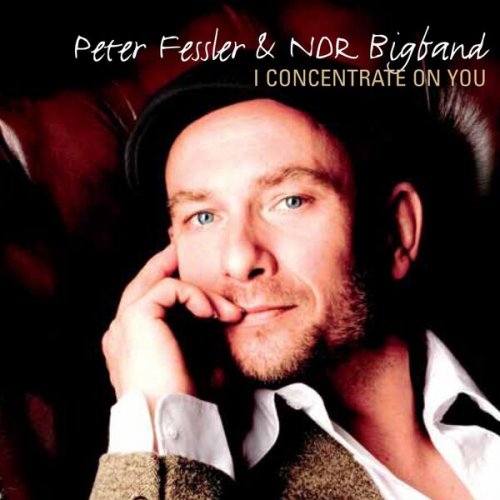Gilbert O'sullivan - Alone Again + Get Down + Love… Gilbert (3xEP) (2023)
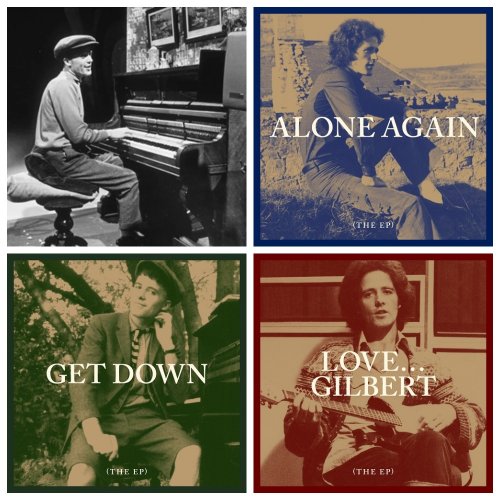
Artist: Gilbert O'sullivan
Title: Alone Again + Get Down + Love… Gilbert (3xEP)
Year Of Release: 2023
Label: Union Square
Genre: Pop Rock, Soft Rock, Singer-Songwriter
Quality: Mp3 320 / Flac (tracks)
Total Time: 48:50
Total Size: 137/359 Mb
WebSite: Album Preview
Tracklist:Title: Alone Again + Get Down + Love… Gilbert (3xEP)
Year Of Release: 2023
Label: Union Square
Genre: Pop Rock, Soft Rock, Singer-Songwriter
Quality: Mp3 320 / Flac (tracks)
Total Time: 48:50
Total Size: 137/359 Mb
WebSite: Album Preview
Alone Again:
01. Alone Again (Naturally) 3:37
02. Nothing Rhymed (2017 Remaster) 3:21
03. Out Of The Question 2:55
04. Let Bygones Be Bygones (feat. Mick Hucknall) 3:13
05. At the Very Mention of Your Name (Single Version) 4:41
Get Down:
01. Get Down 2:40
02. Matrimony (2017 Remaster) 3:12
03. Too Much Attention (2017 Remaster) 2:30
04. Take Love (feat. KT Tunstall) 3:06
05. No Way (Remix) 3:18
Love… Gilbert:
01. Clair 3:00
02. What's In a Kiss (Guitar Version) 2:38
03. Happiness Is Me And You 3:06
04. We Will 3:53
05. Blue Anchor Bay 3:42
Part of a wave of singer/songwriters who followed a path carved out by Paul McCartney and the Bee Gees, Gilbert O'Sullivan created his own distinctive pop persona that relied on lush, dulcet melodies and clever lyrics. O'Sullivan's touch was so soft, his arrangement so opulent, that his hooks tended to obscure the dark undercurrents in his songs, especially on such early hits as "Nothing Rhymed" and "Alone Again (Naturally)." After the latter became an international success in 1972, going so far as to top the Billboard charts in America, O'Sullivan's singles and, eventually, albums favored lighter material like the love song "Clair" and "Get Down," a jaunty tune about a bad dog. O'Sullivan's career slowed in the late '70s as he became embroiled in a legal battle with his record label, a skirmish that wound up being eclipsed by the lawsuit the singer/songwriter filed against rapper Biz Markie, who sampled "Alone Again (Naturally)" on his 1991 album I Need a Haircut. O'Sullivan won his case, changing the course of hip-hop in the process, the win coinciding with his return to active duty as a performing artist. Over the next few decades, he operated on the fringes of the mainstream, tending to a cult audience who enjoyed such albums as 1997's Singer Sowing Machine and an unexpected return to the spotlight, when his eponymous 2018 effort became his first album to chart in Britain in over 40 years. He maintained that momentum with its 2022 successor, Driven.
Born Raymond O'Sullivan in Waterford, Ireland on December 1, 1946, he went on to attend art school in Swindon, England, writing songs throughout his formative years and sending out demo tapes to little avail. After graduating he went to work in a London department store; one of his co-workers there was under contract to CBS, and soon O'Sullivan was signed to the label as well. Early singles like "What Can I Do?" and "Mr. Moody's Garden" were released to little attention, however, so O'Sullivan sent his demo to impresario Gordon Mills, whose MAM label was home to superstars like Tom Jones and Engelbert Humperdinck. The gambit worked, and his first single for MAM, "Nothing Rhymed," became a Top Ten U.K. hit in late 1970.
The wit and craft of O'Sullivan's music aside, much of his early success was predicated on his unusual image -- at the peak of the hippie movement, he resembled nothing so much as a Depression-era street urchin, complete with pudding-bowl haircut, short pants, and flat cap. Subsequent hits including "We Will" and "No Matter How I Try" followed, and in 1971, O'Sullivan issued his debut LP, Himself; a year later, he finally broke through to the American market with the ballad "Alone Again (Naturally)," which topped the U.S. pop charts. Around this time, the singer jettisoned his so-called "Bisto Kid" image in favor of an endless series of collegiate-styled sweaters embossed with the letter "G." In late 1972, O'Sullivan scored his first British number one with "Clair," falling just shy of topping charts on the other side of the Atlantic; the follow-up, "Get Down," reached number one at home as well, as did the LP Back to Front.
As quickly as O'Sullivan ascended to fame, however, his star began to fall. Although singles like "Ooh Baby" and "Happiness Is Me and You" continued to chart, they sold increasingly fewer copies, and after 1973, his overseas popularity essentially ceased altogether. At home, he notched his final Top 20 hit with 1975's "I Don't Love You But I Think I Like You," subsequently leaving MAM after a well-publicized dispute with Gordon Mills; returning to CBS, albums like 1977's Southpaw and 1980's Off Centre failed to find an audience, and outside of the minor hit "What's in a Kiss?" O'Sullivan disappeared from the charts. In 1982, he took Mills to court, ultimately winning back the master tapes to his recordings as well as the copyrights to his songs; in 1991, O'Sullivan was again victorious thanks to a judge's landmark ruling that rapper Biz Markie's unauthorized sample from "Alone Again (Naturally)" was in fact theft.
Regrettably, O'Sullivan's court appearances constituted his highest public profile during this period. After releasing the Graham Gouldman-produced Life & Rhymes in 1982, he did not issue another new LP until Frobisher Drive five years later. In the Key of G followed in 1989, and although none of these records made an impact on the charts, they did appeal to the singer's small but fiercely devoted cult audience, much of it now centered in Japan; indeed, O'Sullivan's next three releases (1992's Rare Tracks and The Little Album, and 1993's Live in Japan, respectively) were initially issued only in Asian markets, and he performed live there regularly. O'Sullivan remained a prolific talent throughout the decade to follow, with subsequent LPs including 1993's Sounds of the Loop, 1994's By Larry, 1995's Every Song Has Its Play, and 1997's Singer Sowing Machine. O'Sullivan saw a spike in his popularity around 2004, when The Berry Vest of Gilbert O'Sullivan reached number 20 on the charts, but he otherwise played to his cult audience who liked his 2007 set A Scruff at Heart, 2011's Gilbertville, and the all-Latin Latin à la Gilbert in 2015. O'Sullivan teamed with producer Ethan Johns for a self-titled collection of new songs in 2018.
Gilbert O'Sullivan became his first new album to chart in Britain since 1974's A Stranger in My Own Back Yard, reaching 20 on the charts. Riding a wave of rekindled momentum, Driven kept that streak alive by reaching 26 upon its July 2022 release.
Born Raymond O'Sullivan in Waterford, Ireland on December 1, 1946, he went on to attend art school in Swindon, England, writing songs throughout his formative years and sending out demo tapes to little avail. After graduating he went to work in a London department store; one of his co-workers there was under contract to CBS, and soon O'Sullivan was signed to the label as well. Early singles like "What Can I Do?" and "Mr. Moody's Garden" were released to little attention, however, so O'Sullivan sent his demo to impresario Gordon Mills, whose MAM label was home to superstars like Tom Jones and Engelbert Humperdinck. The gambit worked, and his first single for MAM, "Nothing Rhymed," became a Top Ten U.K. hit in late 1970.
The wit and craft of O'Sullivan's music aside, much of his early success was predicated on his unusual image -- at the peak of the hippie movement, he resembled nothing so much as a Depression-era street urchin, complete with pudding-bowl haircut, short pants, and flat cap. Subsequent hits including "We Will" and "No Matter How I Try" followed, and in 1971, O'Sullivan issued his debut LP, Himself; a year later, he finally broke through to the American market with the ballad "Alone Again (Naturally)," which topped the U.S. pop charts. Around this time, the singer jettisoned his so-called "Bisto Kid" image in favor of an endless series of collegiate-styled sweaters embossed with the letter "G." In late 1972, O'Sullivan scored his first British number one with "Clair," falling just shy of topping charts on the other side of the Atlantic; the follow-up, "Get Down," reached number one at home as well, as did the LP Back to Front.
As quickly as O'Sullivan ascended to fame, however, his star began to fall. Although singles like "Ooh Baby" and "Happiness Is Me and You" continued to chart, they sold increasingly fewer copies, and after 1973, his overseas popularity essentially ceased altogether. At home, he notched his final Top 20 hit with 1975's "I Don't Love You But I Think I Like You," subsequently leaving MAM after a well-publicized dispute with Gordon Mills; returning to CBS, albums like 1977's Southpaw and 1980's Off Centre failed to find an audience, and outside of the minor hit "What's in a Kiss?" O'Sullivan disappeared from the charts. In 1982, he took Mills to court, ultimately winning back the master tapes to his recordings as well as the copyrights to his songs; in 1991, O'Sullivan was again victorious thanks to a judge's landmark ruling that rapper Biz Markie's unauthorized sample from "Alone Again (Naturally)" was in fact theft.
Regrettably, O'Sullivan's court appearances constituted his highest public profile during this period. After releasing the Graham Gouldman-produced Life & Rhymes in 1982, he did not issue another new LP until Frobisher Drive five years later. In the Key of G followed in 1989, and although none of these records made an impact on the charts, they did appeal to the singer's small but fiercely devoted cult audience, much of it now centered in Japan; indeed, O'Sullivan's next three releases (1992's Rare Tracks and The Little Album, and 1993's Live in Japan, respectively) were initially issued only in Asian markets, and he performed live there regularly. O'Sullivan remained a prolific talent throughout the decade to follow, with subsequent LPs including 1993's Sounds of the Loop, 1994's By Larry, 1995's Every Song Has Its Play, and 1997's Singer Sowing Machine. O'Sullivan saw a spike in his popularity around 2004, when The Berry Vest of Gilbert O'Sullivan reached number 20 on the charts, but he otherwise played to his cult audience who liked his 2007 set A Scruff at Heart, 2011's Gilbertville, and the all-Latin Latin à la Gilbert in 2015. O'Sullivan teamed with producer Ethan Johns for a self-titled collection of new songs in 2018.
Gilbert O'Sullivan became his first new album to chart in Britain since 1974's A Stranger in My Own Back Yard, reaching 20 on the charts. Riding a wave of rekindled momentum, Driven kept that streak alive by reaching 26 upon its July 2022 release.
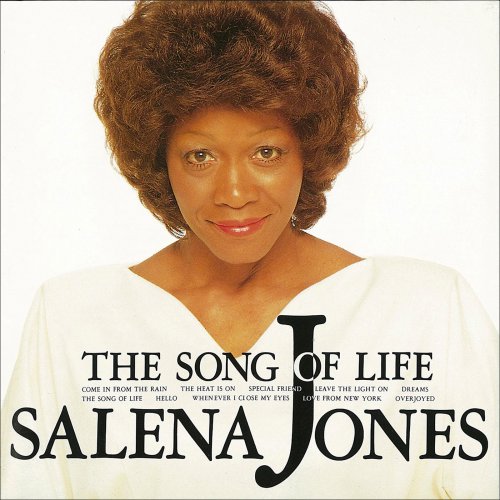

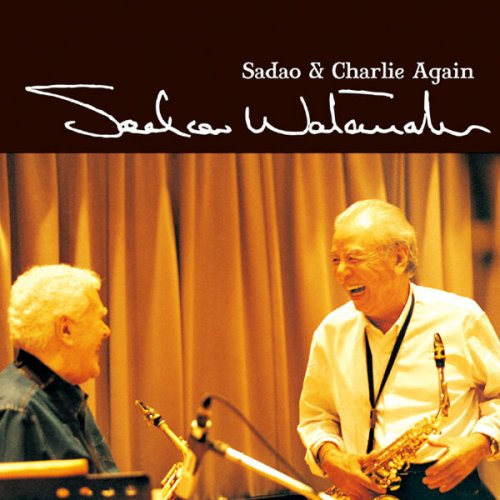


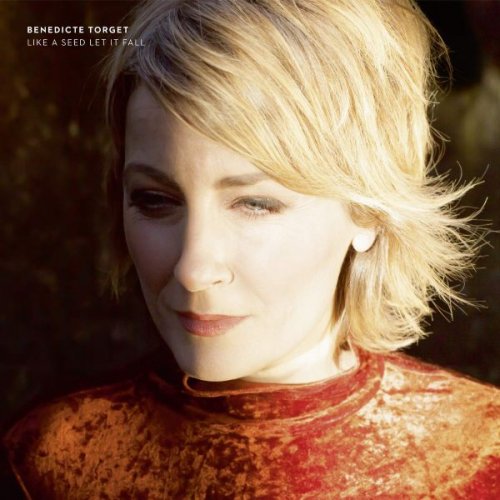
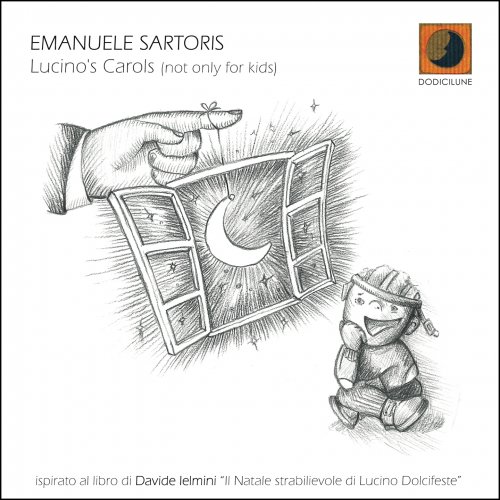
![Anton De Bruin - Sounds of the Eclipse (2025) [Hi-Res] Anton De Bruin - Sounds of the Eclipse (2025) [Hi-Res]](https://img.israbox.com/img/2025-11/02/j2o7oxpr7md82i2pxl6ygzv5f.jpg)
